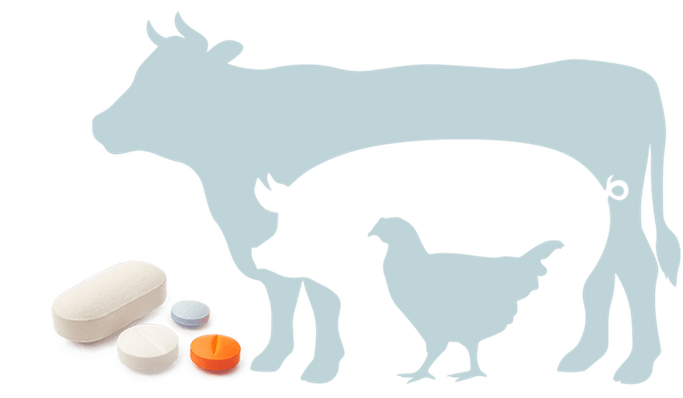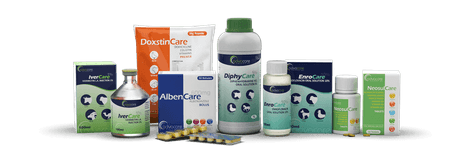What is the meaning of Veterinary Medicine for Sheep?
Veterinary medicine for sheep includes preventing, treating, and managing diseases, infections, and health conditions. Some medicines for sheep also support wool production and reproduction. These livestock animals are primarily kept on farms and ranches for their wool, meat, or as part of agricultural practices.
AdvaCare Pharma is a well-established company that manufactures and distributes veterinary livestock medications, including ovine medicines. Sheep medicines come in various forms depending on the specific needs and conditions, such as:
- Oral drugs for sheep like tablets, oral suspensions, oral solutions, or soluble powders. The sheep typically ingests these medications through the mouth and these are absorbed into the bloodstream through the digestive system. Oral sheep medicines are usually incorporated into lamb or sheep times.
- Boluses for sheep are solid, pill-like formulations containing medications, minerals, or nutritional supplements. They are administered into the animal's mouth, often with a specialized bolus applicator.
- Premixes and granules for sheep feeding containing essential nutrients, vitamins, minerals, and medications, are administered orally by being mixed into the animal's feed. They can help with nutritional deficiencies, parasite infestations, ridding worms in sheep, metabolic disorders, and overall flock health management.
- Injectable medications either directly into the muscle (intramuscular) or beneath the skin (subcutaneous). Injectable medications are often used when rapid absorption or immediate therapeutic effects are required.
- Topical sheep medicines can come in the form of drops, pour-on solutions, sprays, or dip solutions. These medicine for sheep are applied externally to the skin or affected areas for localized treatment of skin or wool problems, wounds, or external parasites.
Some common indications and areas of application for veterinary care for sheep include:
- Parasite control: Sheep can be prone to parasitic infestations such as gastrointestinal worms, external parasites, and liver flukes. Antiparasitic medicine for ovines prevents and treats worms in sheep in similar infestations, reducing their impact on their health and productivity. Worming in sheep is one example.
- Respiratory infections: These can be caused by bacteria or viruses. Antibiotics for sheep or antivirals may be used are treatment for orf in sheep or other viruses that cause respiratory conditions such as pneumonia or viral infections.
- Nutritional deficiencies: Dietary supplements may be required to address deficiencies in the diet. Supplement medicine for sheep can include vitamins, minerals, or trace elements and is given to promote optimal growth, reproduction, and overall health.
- Reproductive management: Medication for sheep can be used to manage reproductive processes in sheep, such as synchronizing estrus cycles, inducing ovulation, or controlling breeding patterns in ewes. Hormonal treatments or prostaglandins are commonly used for reproductive purposes in both ewes and rams.
- Gastrointestinal problems: Treatment for diarrhea in sheep and other gastro concerns can greatly impact the overall health and well-being of a flock. Antibiotics for sheep are essential tools in the veterinarian's arsenal for bacterial-related gut issues, ensuring that harmful pathogens are swiftly addressed.


